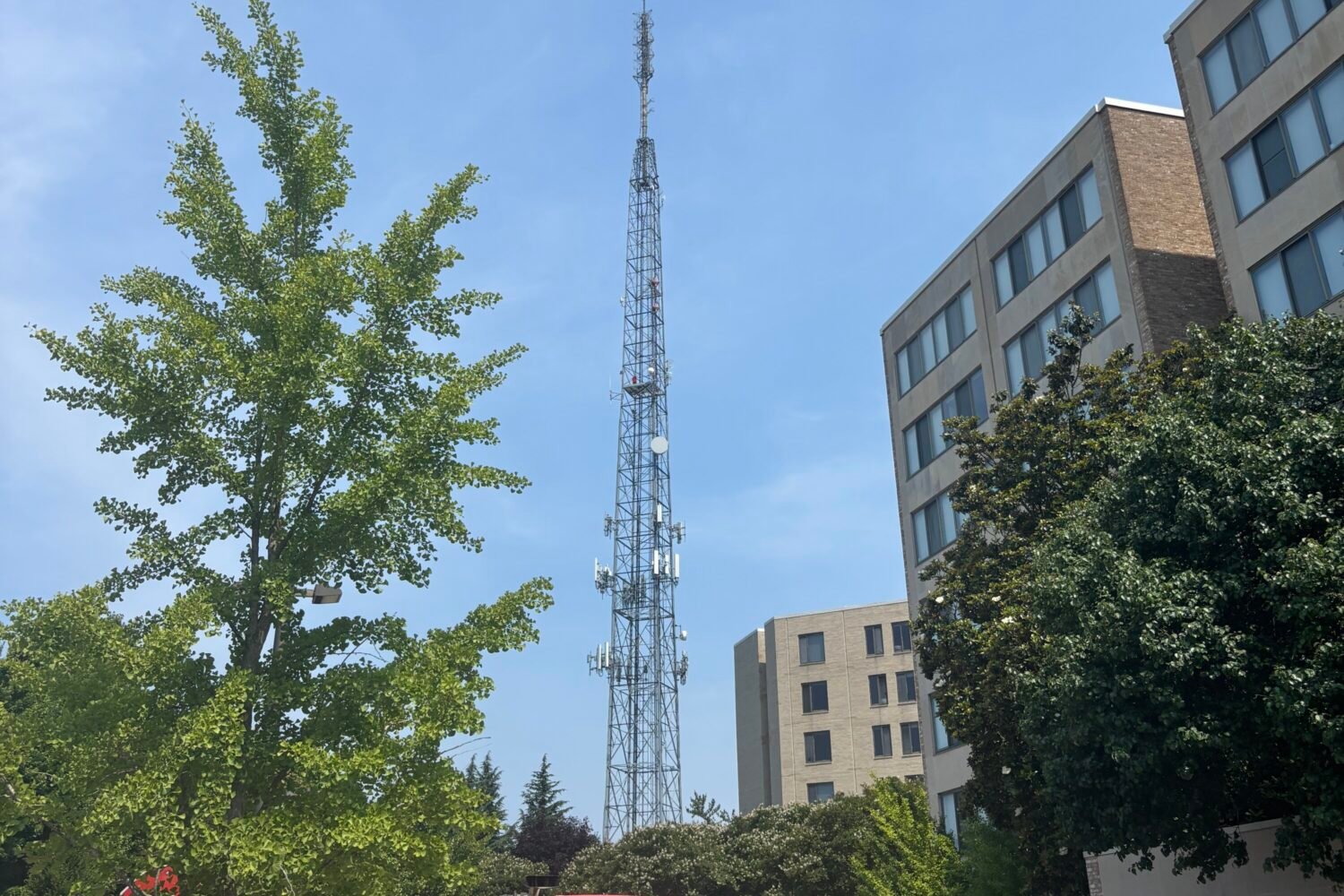American University says it plans to announce “a series of actions to improve the WAMU workplace now and in the future” in the next few days, according to a statement from Seth Grossman, American University’s vice president of people and external affairs.
That vague promise follows a tumultuous summer at the public radio station, which has seen the departures of people in key roles, financial uncertainty from the coronavirus pandemic, and the challenges of covering a national reckoning over race with its journalists working mostly from home. And that’s before a staff revolt spurred by an internal dispute that caught fire on social media and a thoroughly reported article, published by the WAMU-owned DCist, that documented dozens of allegations of misconduct against former WAMU reporter Martin Di Caro and what reads as a feckless response by the station.
Last Friday during a fraught, two-hour-long all-staff meeting, many staffers demanded that general manager J.J. Yore resign. Yore apologized repeatedly and, along with station associate general manager Carey Needham, took responsibility for what went wrong with Di Caro while repeatedly citing HR and legal strictures for they couldn’t provide more specific answers about what exactly happened.
WAMU did not make Yore available for an interview but sent along Grossman’s statement, which also says the university is “actively listening to staff concerns and recognize there are both specific and broader issues WAMU must address in the areas of diversity, equity, and inclusion, as well as how matters of misconduct are handled at WAMU.”
Yore is a co-creator of Marketplace who has reshaped the station and grown its audience and finances since he arrived at WAMU in 2014. From the outside, however, this summer looks like it has been a months-long nightmare for his administration. Chief content officer Andi McDaniel announced in May that she planned to leave to become the president and CEO of Chicago public radio powerhouse WBEZ. The pandemic delivered a heavy blow to the station’s balance sheet—not just in falling revenue but in the not-inconsiderable costs of making it possible for audio reporters and hosts to work from home.
Then, in late June, a staff uprising began after 1A producer Morgan Givens tweeted that Yore was “actively seeking a way to fire me.” Givens had called President Trump a “white supremacist fascist” in a different tweet; 1A executive producer Rupert Allman told the publication Current, which closely covers public media, that he believed that tweet “overstepped NPR’s guidelines pertaining to journalists’ expression of political views on social media,” as reporter Sasha Fernandez described his thinking (NPR distributes 1A.) Yore denied in a staffwide email that he intended to fire Givens and apologized for the situation, but the incident trained an unflattering spotlight on WAMU’s staff diversity, with staffers saying on social media that they’d seen too many talented Black journalists leave the station.
Soon after, Current reported that American University was investigating senior managing editor Zuri Berry over allegations that he’d created conditions that caused two Black journalists to leave. Later in July, WAMU reorganized its newsroom, with news director Jeffrey Katz stepping down and DCist Editor-in-Chief Rachel Sadon replacing him on an interim basis.
Those moves came after several people made allegations about Di Caro on social media. Then last week DCist’s Di Caro story arrived, written by senior editor Rachel Kurzius, who reported that WAMU promoted Di Caro to a full-time position despite warning him repeatedly about sexual harassment. Yore told Kurzius he was “saddened … to learn the extent to which staff felt uncomfortable with the behavior of a former WAMU employee. The concerns and complaints that have been raised occurred on my watch — and they are unacceptable.”
Last Thursday, Yore called a virtual all-hands meeting to discuss the station’s finances, hold a get-to-know-you Q&A with new 1A host Jenn White, and, as he said in an email to staff, “talk for a few minutes about the story that appeared in DCist yesterday.” That temporal formulation landed with a thud among staffers furious about what the Di Caro article said about their workplace, and Yore emailed staffers a bit later to say, “Thinking further about all that is swirling in the aftermath of yesterday evening’s DCist story, I’d like to take a bit more time with my leadership colleagues so that we can be prepared to share more concrete thoughts during this important conversation” and pushed the meeting to Friday afternoon.
An auto-generated transcript of Friday’s meeting obtained by Washingtonian backs up several employees’ description of it as “brutal” for Yore. It began with Yore calling Kurzius’s article an “extraordinary piece of journalism” and saying he was “shocked to to learn about the extraordinary number of women who came forward to tell their stories” about Di Caro. Yore said he was “just sick” that such behavior could have happened at WAMU, and that he’s “been up many nights, thinking about what what I could and should have done differently.”
Yore promised improved HR policies—AU has long performed HR functions for WAMU, and the station only recently got internal HR support—and to hire a full-time “employee relations” specialist. He said the station had committed about half a million dollars to diversity and equity work, and that WAMU planned to import several employees into leadership to improve diversity.
None of these moves appeared to satisfy many staffers in the Q&A section of the meeting. Two people expressed bafflement directly to Yore that he didn’t say he was leaving the station during his introduction. Another said it was clear that, with regard to Di Caro, no one in leadership had “the moral or ethical compass to to figure out what to do.” WAMU’s reputation has taken an enormous hit, one person in the meeting said. “How are you going to fix that without resigning, J.J.?”
A concurrent text chat during the meeting was even rougher, with staffers complaining about not being heard and taking issue with proceedings, in particular one person who raised John Lewis’s legacy as a model for WAMU going forward. Also, staffers passed around a Google Forms poll that asked one question: “Would you like JJ Yore to resign?” The “easy answer is resigning,” one typed. “You don’t ask the arsonist to then come put out the fire in house they set aflame.”
Yore said he had no plans to leave: “I think in some ways, the easiest thing for me to do would be would be to walk away,” he said, according to the transcript. But, he said, “my choice, at least for now is to is to stay is to face you and to try to implement the changes that we need to make.”


















